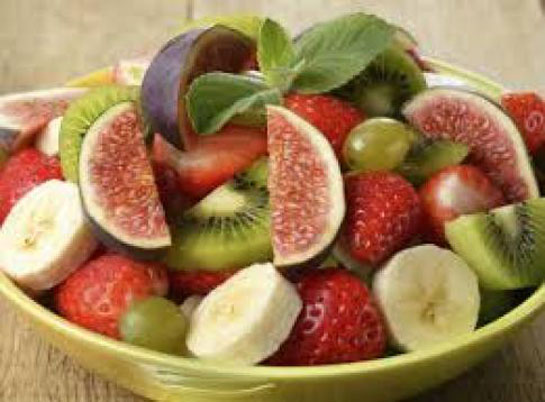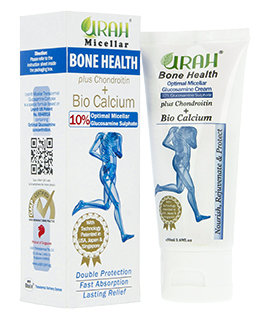
It's no secret that a proper, healthy raw food diet contains a lot of fruit. In fact, the quantity of fruit that I consume in one single day probably exceeds the quantity consumed by an average family on a weekly, if not monthly basis.
When people look at all that fruit, they're suddenly afraid that eating so much of it will cause them health problems, the most common being cited is blood sugar issues.
I've known many people who are absolutely convinced that whenever they eat a lot of sweet fruit, their blood sugar "goes out of wack." Their interpretation of what is happening to them is often "getting sudden energy, followed by a blood sugar crash."
In other words, they compare their body's response to eating fruit to a common response to stimulants such as alcohol or caffeine: a sudden stimulation followed by a depressed, "recovery" state.
In reality, in a fairly healthy individual, blood sugar will remain stable no matter how much fruit is eaten. I have tested this myself by testing my blood sugar throughout the day, and I found that it didn't matter how many bananas I ate: my blood sugar remained normal throughout the day.
In fact, even when I eat more than 20 bananas in a day (which I do regularly), my blood sugar stays absolutely normal.
Dr. Graham, author of the book "The 80-10-10 Diet", also told me that whenever people came to him thinking that their "blood sugar was out of balance" due to sweet fruit consumption, they were found to have perfectly normal blood sugar after being tested.
That being said, I think that it's still possible for some people to experience a negative reaction from eating sweet fruit. However, it's not the fruit that's to blame in this case, but their overall diet which is too high in fat. This situation is best explained in the book "Breaking the Food Seduction", by Dr. Neal Barnard, M.D.
So again, fruit has been blamed for a problem it did not cause. In most cases, people who think they have blood sugar spikes have in fact perfectly normal blood sugar. And in the few cases when they truly are not handling the sweet fruit they eat properly, their high-fat diet is to blame, not the fruit.
What about diabetes? Should diabetics avoid fruit altogether or should they not worry about it?
Again, it's best to look at the root of the problem, rather than analyse it superficially.
Fruit eating does NOT cause diabetes. Diabetes is actually caused by a high-fat diet, combined with other factors (some possibly genetic) that will cause reduced insulin sensitivity.
While type 1 diabetes occurs early in life and is rarely reversible, type 2 diabetes is simply an acute form of insulin resistance or "reduced insulin sensitivity." This type is completely reversible when the root of the problem is addressed in time.
If you want to improve your body's response to the natural sugar in fruit — and all of the food you eat for that matter — all you have to do is improve your insulin sensitivity by doing the following:
These recommendations, endorsed by many health professionals with extensive experience healing with diabetes naturally (Fuhrman, Mc.Dougall, Ornish, Barnard, etc.), are actually perfectly compatible with a high-fruit, low fat diet.
Most diabetics I know have done incredibly well on a fruit-based diet (as long as it's a low-fat one), by reducing dramatically the quantity of insulin they have to take, or eliminating it completely.
The problem of diabetes should be addressed by looking at the root of the problem rather than superficially claiming that sweet fruit will only exacerbate it. You should pay attention to all the important factors that can improve insulin sensitivity, the main ones being: a low fat diet, regular exercise, low body fat, and a raw food diet.
It seems like every other person I meet in the raw food movement has issues with Candida. Usually, the main culprit blamed is sweet fruit.
The question remains whether they actually have a real overgrowth of the yeast "Candida Albicans" or not. I'm personally very skeptical of the self-diagnosis that most "Candida" sufferers come up with. In most cases, I believe they are simply showing symptoms of a diet that doesn't work, whether it's related to Candida or not.
The real problem with Candida is once you are convinced of the problem, you generally follow what is called the "Candida Diet," which does exactly what it claims in its name: it gives you more Candida! It's funny that they don't call it the "Anti-Candida diet" but the "Candida Diet."
When you analyze the diet you will find yet another variation of the medical model for dieting: elimination of carbohydrates and increase in fat and protein. Fortunately for the promoters of this diet, these recommendations actually cause your Candida to stay for a long time. The elimination of sugar might control some of the symptoms, but the root of the problem is being fed with every meal.
Issues with Candida are easily solved once you understand the concept of insulin sensitivity and realize how a high-fat diet actually contributes to elevated blood sugar, which in turn will feed the Candida yeast.
Every food that you eat will be transformed to sugar to feed the cells. The word sugar has been slandered so much that some people seem to be afraid to have sugar run in their bloodstream at any time! But without blood sugar, your cells will die, and your muscles and brain function will stop working.
Your goal should be to keep your blood sugar stable and normal, and not let the sugar accumulate in the blood. It should be swiftly escorted to the cells when they need it. And the way to do that is to simply improve your insulin sensitivity.
So the "Anti-Candida diet" is quite counter intuitive, but addresses the root of the problems, not the superficial symptoms. On this program, you will eliminate any overly fatty foods from your diet (such as oils, avocados, nuts and seeds) for a period of several weeks or months. You will also pay attention to the other factors I have mentioned that can improve your insulin sensitivity.
And if you're afraid of going on a "no-fat" diet, remember that all fruits and vegetables contain a tiny but sufficient percentage of fat, enough to meet your basic needs.
It's important to make the difference between artificial, supplemental potassium (K), and the naturally occurring potassium in fruits. The FDA does not allow a supplement to contain more than 99 mg. of potassium, and injecting yourself with 200 mg of artificial potassium can rush you to the hospital. But three bananas contain up to 1,200 mg of natural potassium, which will not cause any negative symptoms.
There's really no point to fear any potassium "overdose" even when eating a fair number of bananas. Research done on wild monkeys showed that they eat over 6500 milligrams of potassium per day. It would take you over 15 bananas to eat as much potassium as they do. Plus wild monkeys are much smaller in size than we are, so we could eat even more bananas and not even reach the potassium intake of a monkey on a daily basis.
I have previously stated in my e-zine that early humans consumed 40 times as much potassium as sodium. It makes sense because we lose potassium a lot faster than sodium.
The "official" recommendations by nutritionists are to eat more potassium and less sodium.
Even standard nutritionists agree that most people do not eat enough potassium and that ideally they should consume close to 5000 milligrams per day, and even more for active people.
Every single week, it seems like a new anti-cancer antioxidant is discovered in some fruit or vegetable. In fact, if you really do some research on the subject, you will find overwhelming evidence linking fruit eating to reduced incidence of cancer. The American Cancer Society also recommends to increase fruit consumption (http://caonline.amcancersoc.org/cgi/content/full/52/2/92)
So it's beyond me how some knucklehead naturopath could make the outrageous claim that eating sweet fruit can cause cancer, or that cancer patients should avoid it completely.
The theory is that since cancer cells feed on sugar, cancer patients should avoid fruit to make sure those cells don't grow out of control. Obviously, they don't realize that blood glucose can be created by any food you eat. Even if you avoid sweet fruit but eat more protein or fat, those nutrients will be converted to glucose and fed to the cells. So what's the solution, not eat anything at all and waste away?
Again, it's best to address the root of the problem. Does eating fruit cause cancer? If it did, how many scientific studies can you cite that have linked sweet fruit consumption to increased incidence of cancer? You haven't heard of these studies simply because they don't exist.
For a better understanding of the nutritional causes of cancer, read "The China Study" by T. Colin Campbell.
Source: http://www.fredericpatenaude.com/blog/?p=173
Click here to Check How to Use Urah Products
Click here to Check the Quality of your Glucosamine Product before use

2026 © URAH Transdermal Pte Ltd. ALL Rights Reserved. Urah Privacy Policy | Terms of Service | Return Policy
Disclaimer: All contents on this website are provided for general information only, and should not be treated as a substitute for the medical advice of your Physician or any other health care professional. Urah is not responsible or liable for any diagnosis made by any user based on the content of this website. Always consult your own Physician if you're in any way concerned about your health. Urah Micellar Transdermal Cream formulae are not patented or under any patent rights.
No comment yet